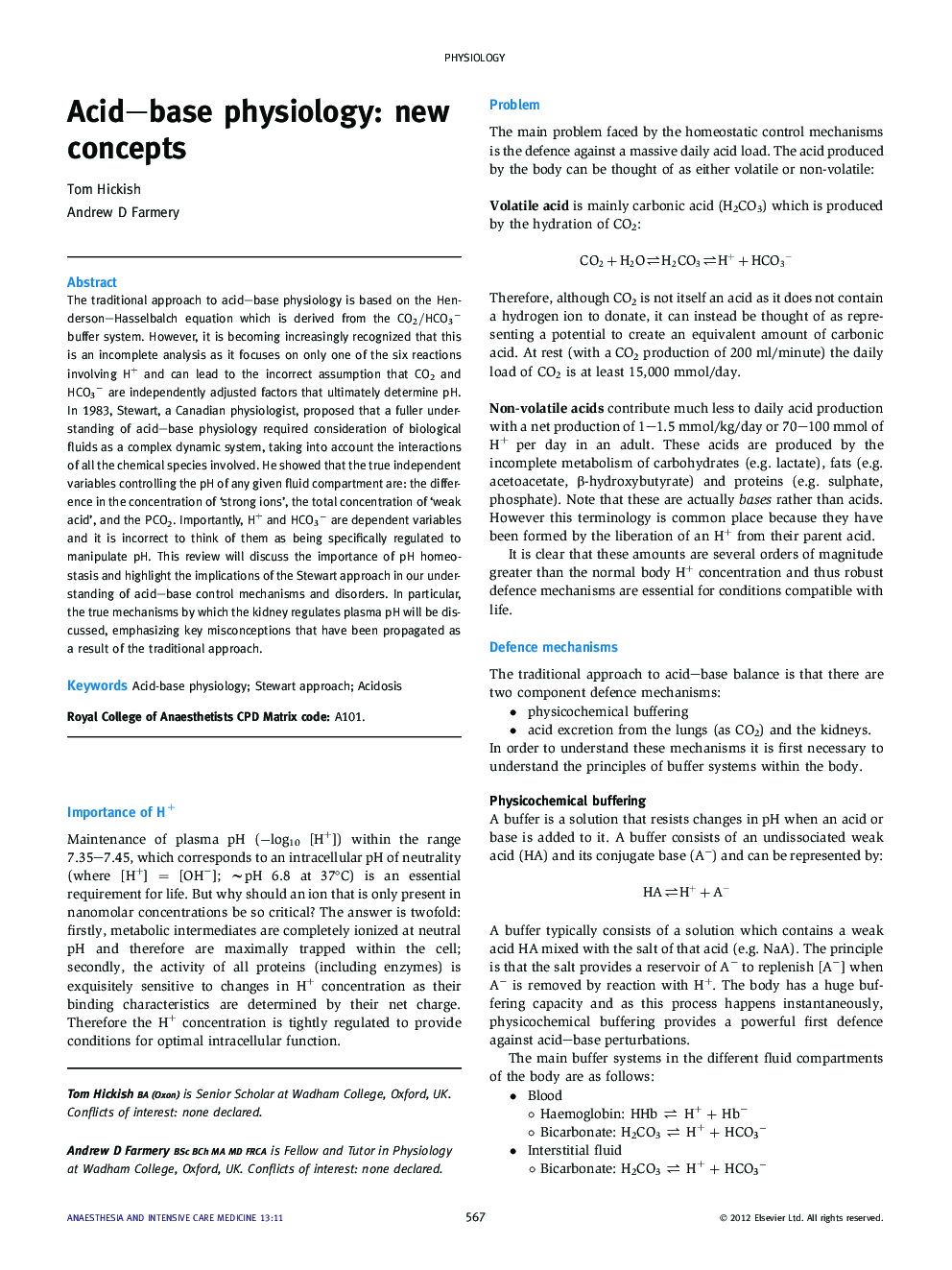| کد مقاله | کد نشریه | سال انتشار | مقاله انگلیسی | نسخه تمام متن |
|---|---|---|---|---|
| 2742701 | 1148623 | 2012 | 6 صفحه PDF | دانلود رایگان |

The traditional approach to acid–base physiology is based on the Henderson–Hasselbalch equation which is derived from the CO2/HCO3−CO2/HCO3− buffer system. However, it is becoming increasingly recognized that this is an incomplete analysis as it focuses on only one of the six reactions involving H+ and can lead to the incorrect assumption that CO2 and HCO3−HCO3− are independently adjusted factors that ultimately determine pH. In 1983, Stewart, a Canadian physiologist, proposed that a fuller understanding of acid–base physiology required consideration of biological fluids as a complex dynamic system, taking into account the interactions of all the chemical species involved. He showed that the true independent variables controlling the pH of any given fluid compartment are: the difference in the concentration of ‘strong ions’, the total concentration of ‘weak acid’, and the PCO2. Importantly, H+ and HCO3−HCO3− are dependent variables and it is incorrect to think of them as being specifically regulated to manipulate pH. This review will discuss the importance of pH homeostasis and highlight the implications of the Stewart approach in our understanding of acid–base control mechanisms and disorders. In particular, the true mechanisms by which the kidney regulates plasma pH will be discussed, emphasizing key misconceptions that have been propagated as a result of the traditional approach.
Journal: Anaesthesia & Intensive Care Medicine - Volume 13, Issue 11, November 2012, Pages 567–572